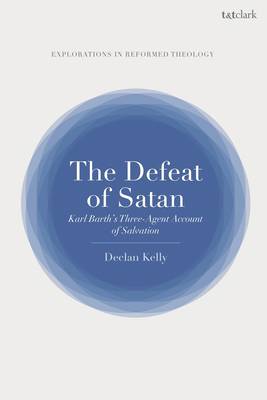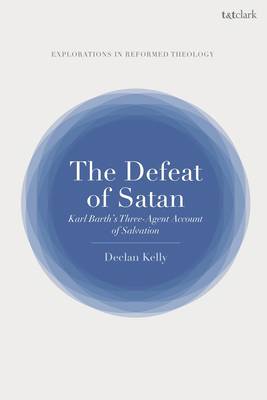
- Afhalen na 1 uur in een winkel met voorraad
- Gratis thuislevering in België vanaf € 30
- Ruim aanbod met 7 miljoen producten
- Afhalen na 1 uur in een winkel met voorraad
- Gratis thuislevering in België vanaf € 30
- Ruim aanbod met 7 miljoen producten
Zoeken
€ 220,45
+ 440 punten
Uitvoering
Omschrijving
This book offers an innovative, critical, and constructive exploration of Barth's theology, one which demonstrates the radicality of his thought and which underscores the continued contribution he might make to theological reflection on a central element of the Christian tradition.
Declan Kelly uncovers the promise of viewing Barth's account of salvation as a "three-agent drama"-a drama involving God, humanity, and anti-God powers. Kelly demonstrates and examines Barth's cosmological portrayal of God's saving event as a defeat of the lordship of Satan in the cosmos-and, bound up with this, as an ending of God's "left handed" activity-and as the bringing into existence of a new creation under the rule of God's right hand. Barth's doctrines of election, the atonement, and the resurrection receive a fresh reading as the book explores his apocalyptic grasp of God's eschatological deed of salvation and as it puts forward the claim-with and against Barth-that the climax of this deed of salvation is best located in the event of God's raising of Christ from the dead.Specificaties
Betrokkenen
- Auteur(s):
- Uitgeverij:
Inhoud
- Aantal bladzijden:
- 176
- Taal:
- Engels
- Reeks:
Eigenschappen
- Productcode (EAN):
- 9780567698230
- Verschijningsdatum:
- 24/02/2022
- Uitvoering:
- Hardcover
- Formaat:
- Genaaid
- Afmetingen:
- 156 mm x 234 mm
- Gewicht:
- 426 g

Alleen bij Standaard Boekhandel
+ 440 punten op je klantenkaart van Standaard Boekhandel
Beoordelingen
We publiceren alleen reviews die voldoen aan de voorwaarden voor reviews. Bekijk onze voorwaarden voor reviews.







